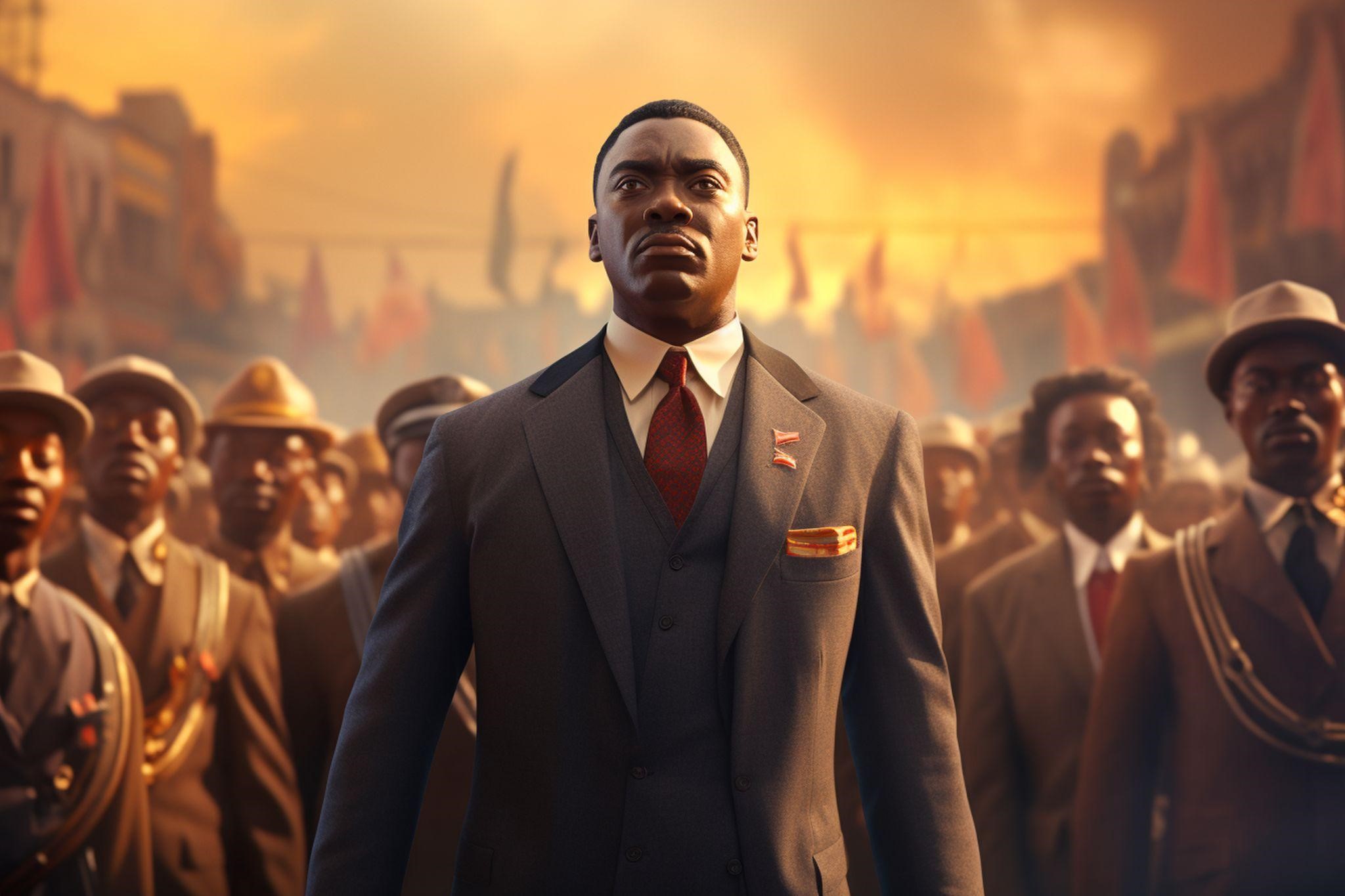Throughout America’s history, Black leaders have played a pivotal role in the fight for freedom, equality, and justice. Their courage, resilience, and vision have sparked social movements that continue to inspire us today.
From the abolition of slavery to the Civil Rights Movement, these remarkable individuals not only challenged the status quo—they reshaped the very fabric of American society.
Now, we’ll explore some of the most influential Black leaders in history and examine how their legacies continue to inspire today’s movements for civil rights and social change.
1. Frederick Douglass: The Voice of the Voiceless
Born into slavery in 1818, Frederick Douglass became one of the most powerful voices for abolition and social justice in America. After escaping slavery, he used his writing and oratory skills to expose the brutal realities of slavery, becoming a leading figure in the abolitionist movement.
His autobiography, Narrative of the Life of Frederick Douglass, remains a powerful testimony to the horrors of slavery and a call for equality. Douglass’s advocacy didn’t stop with abolition. He also campaigned for women’s rights and equal education for all.
His speeches and writings helped shape public opinion and influenced key legislative changes, including the passing of the 13th Amendment, which abolished slavery. Douglass’s legacy continues to inspire those advocating for justice and human rights.
2. Harriet Tubman: The Underground Railroad’s Heroine
Another towering figure in the abolitionist movement was Harriet Tubman. Born into slavery, Tubman escaped to freedom and then risked her life repeatedly to rescue hundreds of enslaved people through the Underground Railroad.
Tubman’s courage and leadership earned her the nickname “Moses,” and she became an enduring symbol of selfless dedication to freedom.
Tubman’s efforts were not limited to the Underground Railroad. During the Civil War, she served as a nurse, cook, and spy for the Union Army, further proving her commitment to justice.
Her story is a powerful reminder of the importance of action in the face of injustice, and her legacy still inspires today’s fight for equality.
3. Dr. Martin Luther King Jr.: A Dream of Equality
One of the most influential figures in the Civil Rights Movement was Dr. Martin Luther King Jr. His philosophy of nonviolence and civil disobedience, inspired by Mahatma Gandhi, helped lead the charge against segregation and racial inequality in the 1960s.
King’s leadership during key events like the Montgomery Bus Boycott and the March on Washington helped galvanize the movement for racial equality.
King’s iconic “I Have a Dream” speech, delivered during the 1963 March on Washington, remains one of the most powerful statements of hope and unity ever made.
King’s work led to significant legislative changes, such as the Civil Rights Act of 1964 and the Voting Rights Act of 1965, but his dream of full equality for all Americans remains a work in progress. His legacy continues to inspire today’s movements for racial justice.
4. Rosa Parks: The Courage to Stand Up
On December 1, 1955, Rosa Parks took a stand that would change the course of history. When Parks refused to give up her seat to a White man on a segregated bus in Montgomery, Alabama, she became a symbol of resistance against racial injustice.
Parks’ quiet act of defiance sparked the Montgomery Bus Boycott, a pivotal moment in the Civil Rights Movement that lasted over a year and led to the desegregation of public buses in Montgomery.
Parks’ bravery continues to resonate today, reminding us that ordinary individuals can create extraordinary change. Her legacy encourages us to stand up for justice, no matter how difficult the battle may seem.
5. Malcolm X: The Radical Voice for Black Power
Malcolm X was another influential leader who played a crucial role in the fight for racial equality in America. While his approach to social justice was more radical than Dr. King’s, Malcolm X’s advocacy for Black pride, empowerment, and self-defense resonated with many in the Black community.
His call for Black self-determination and his unapologetic stance on the fight for equality challenged the deeply rooted structures of racial oppression in America.
Malcolm X’s transformation, especially after his pilgrimage to Mecca, where he embraced a more inclusive approach to the struggle for racial justice, marked a pivotal moment in his life. His advocacy for Black power and his powerful speeches continue to influence the discourse around racial justice today.
6. Contemporary Influence: Black Lives Matter and Beyond
While the leaders of the past laid the groundwork for racial equality, the struggle continues today. The Black Lives Matter (BLM) movement, which emerged in 2013, has played a significant role in raising awareness about police brutality, racial profiling, and the injustices faced by Black Americans in the criminal justice system.
BLM has continued the work of past leaders, using social media, protests, and grassroots activism to challenge racial inequality and demand systemic change.
Today, figures like Patrisse Cullors, Alicia Garza, and Opal Tometi, the co-founders of Black Lives Matter, are carrying the torch of resistance, reminding us that the fight for racial equality is ongoing and that each of us has a role to play in creating a more just society.
Iheanyi Okoroafor’s The Black Man in America
In his book The Black Man in America, Dr. Iheanyi Okoroafor provides a compelling and insightful exploration of the struggles faced by Black men in America.
His work sheds light on the challenges, triumphs, and ongoing battles that Black Americans face in their pursuit of justice and equality.
Okoroafor’s perspective offers valuable insights into the current state of racial inequality and provides practical solutions for addressing the issues that continue to hinder true equality.

Final Thoughts: Honoring the Legacy of Black Leaders
The Black leaders who shaped America’s fight for justice did not do so in the face of easy circumstances.
Their sacrifices, resilience, and unyielding belief in the principles of freedom and equality laid the foundation for the ongoing struggle for justice. As we continue to build on their legacies, it’s essential that we honor their work by carrying forward their missions.
Are you ready to learn more about the heroes who shaped our fight for justice? Dive deeper into the history of Black leaders and explore the Book in Amazon Store where you can be a part of today’s movement for change.




